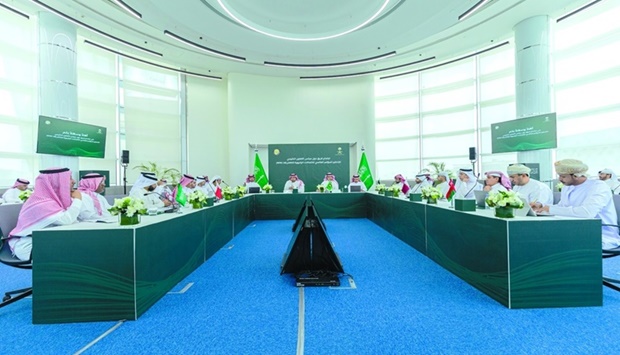The Communications Regulatory Authority (CRA) participated in the third meeting of the Co-operation Council for the Arab States of the Gulf (GCC) Group in charge of preparing for the World Radiocommunication Conference (WRC-23), which concluded in Riyadh, Saudi Arabia Wednesday.
During the three-day meeting, the Group discussed several important issues related to radiocommunication, with the aim of harmonising stances and developing common views on the key issues before the official participation in the WRC-23, which will be held under the umbrella of the International Telecommunication Union (ITU) in 2023 in the UAE.
The meeting included discussions about the agenda items of the WRC-23 and several reports issued by the working groups under the Group. The agenda also included meetings of the five working groups under the Group, in addition to the results of the previous meetings that discussed the matters related to the radio spectrum.
The WRC is one of the most important conferences on the ITU calendar and the CRA is keen to attend it to continue playing a major role in shaping international discussions and decision-making related to spectrum issues to safeguard the national interests of Qatar.
The WRC is held every three to four years to review, and, if necessary, revise the Radio Regulations, the international treaty governing the use of the radio-frequency spectrum and the geostationary-satellite and non-geostationary-satellite orbits, as well as to address any issues concerning radiocommunication at the global level. Qatar is among the ITU Member States that have signed this treaty, which obliges the signatory states to comply with the treaty provisions in accordance with the special Radio Regulations.
All the ITU Member States rely on WRC outputs to develop their National Frequency Plans in their respective countries for the coming three to four years until the next Conference. Therefore, after the WRC, the CRA publishes the National Frequency Allocation Plan (NFAP), which is aligned with the outcomes of the WRC and considers the projects’ plans in the sectors that are critical to Qatar’s economy, as it covers all Qatar’s requirements of radio spectrum usage in different fields, such as the Information and Communications Technology (ICT), aviation, security, and energy.
The NFAP is a comprehensive frequency allocation document that provides a transparent, clear, and non-discriminatory approach to the management of the radio spectrum; also, it is a guide for individuals, government, and private entities on how the frequency bands are allocated in Qatar.

